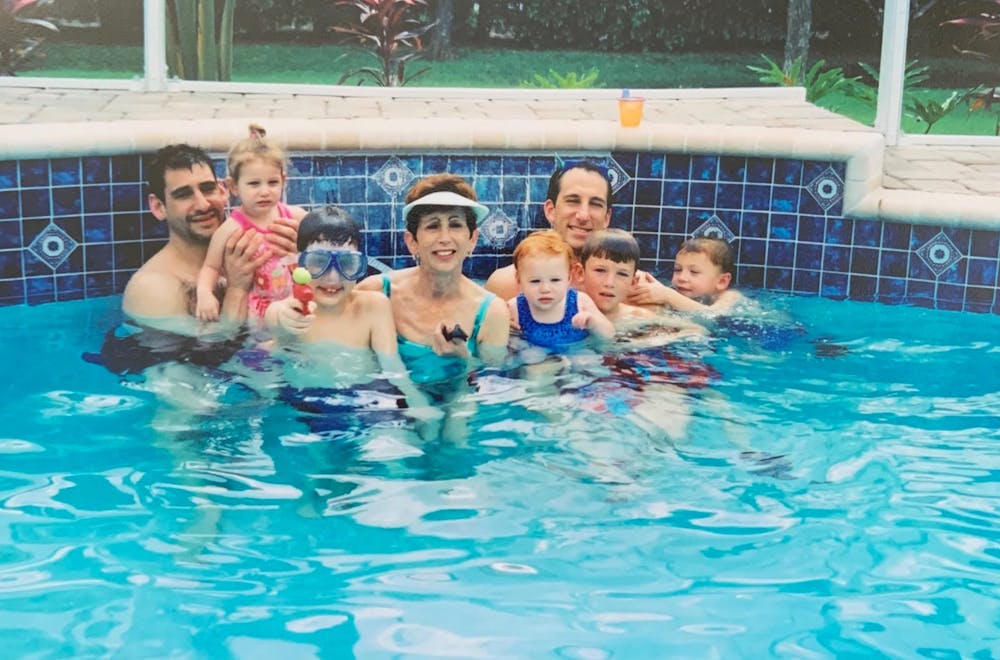
My grandmother is dying.
She has been in and out of the hospital for the past few months — from falls, infection and difficulty breathing — and now she has heart failure. The doctor called my dad and his brother to ask if they would like a do-not-resuscitate order because, if my grandmother needs to be put on a ventilator, she will probably never come off of it. They said yes. My grandmother is dying in a hospital alone, and I don’t know how to feel.
I should explain that my grandmother and I do not have the best relationship. For the past 14 years, she has been my sole living grandparent. She lived less than an hour away for most of my childhood, and my family used to visit her frequently. Despite this, I rarely got the impression that my grandmother wanted to really know me.
Most of the time, she would ask me a few customary questions about school and then the conversation between the adults at the dinner table would promptly resume. They would discuss politics or religion, and I would spend the rest of the meal picking at a hangnail and waiting to go home. To me, my grandmother’s interest in my life has always felt superficial or at best courteous. I’ve never known anything else.
In elementary school, I was surprised to learn that my classmates had different relationships with their grandmothers — that they shared traditions and memories, not just a last name and familial obligations. I’d see their grandmothers eat lunch with them on Wednesdays, a privilege my school afforded to kindergarteners, and didn’t understand how they were all smiling and laughing. I didn’t know grandmothers did that or could make children do that. I was envious.
I desperately wanted a grandmother that would, if not fulfill the stereotypes of baking cookies and playing mahjong, then at least seem invested in my life. Throughout high school, my grandmother knew which colleges I was looking at and what extracurriculars I was involved in, but didn’t ask who my friends were or what opinions I had. She knew my resume well enough, but she didn’t know me as an individual, and this didn’t seem to bother her.
I am wary of telling my friends that my grandmother is dying. I don’t want their pity because I don’t deserve it. I am not overwhelmed by grief. Really, I just feel sympathy for my dad. He has had to deal with the midnight phone calls from the hospital, the countless injuries and diagnoses and the knowledge that his mother is in a hospital bed, disoriented and unable to have visitors because of the hospital’s COVID-19 precautions. I am just a witness to his pain.
I do not know the torture of watching your parent, once invincible and omniscient, become frail and senile. Seeing my dad endure the deterioration of his mother’s health has made me, unwillingly, confront the fact that my parents will fall ill one day, too. This isn’t news, but it’s something I usually try to push away to the back of my mind. When my dad gets into a cycling accident and breaks his ribs, I push it away. When my mom forgets a word and I realize that she is 11 years away from the age her mother was diagnosed with Alzheimer’s, I push it away.
But when my dad gets a phone call from the hospital and he tenses with fear, there is no more room in the back of my mind. I am forced to observe the cyclic child-parent relationship, to think of how quickly a baby must assume the role of caretaker and tend to the lives he was born from.
My grandmother is dying, and I feel guilty that I don’t get choked up saying that. All I can do is watch my father lose his mother and know that I’ll never be prepared to, but will inevitably have to, be in his position.
Abigail Tuschman is a freshman from Fort Lauderdale, Fla. majoring in Writing Seminars. Her column documents the ups and downs of her unusual first year of college.

















